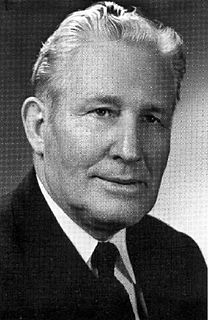A Quote by Ulysses S. Grant
Declare Church and State forever separate and distinct, but each free within their proper spheres, and that all church property shall bear its own proportion of taxation.
Related Quotes
The divorce between Church and State ought to be absolute. It ought to be so absolute that no Church property anywhere, in any state or in the nation, should be exempt from equal taxation; for if you exempt the property of any church organization, to that extent you impose a tax upon the whole community.
Let us labor for the security of free thought, free speech, pure morals, unfettered religious sentiments, and equal rights and privileges for all men, irrespective of nationality, color, or religion;.... leave the matter of religious teaching to the family altar, the church, and the private school, supported entirely by private contribution. Keep church and state forever separate.
Encourage free schools and resolve that not one dollar appropriated for their support shall be appropriated to the support of any sectarian schools. Resolve that neither the state nor nation, nor both combined, shall support institutions of learning other than those sufficient to afford every child growing up in the land of opportunity of a good common school education, unmixed with sectarian, pagan, or atheistical dogmas. Leave the matter of religion to the family altar, the church and the private school supported entirely by private contributions. Keep the church and state forever separate.
I believe in absolute freedom of conscience for all men and equality of all churches, all sects and all beliefs before the law as a matter of right and not as a matter of favor. I believe in the absolute separation of church and state and in the strict enforcement of the Constitution that Congress shall make no law respecting an establishment of religion or prohibiting the free exercise thereof I believe that no tribunal of any church has any power to make any decree of any force in the law of the land, other than to establish the status of its own communicants within its own church.
More thinking is required, and we should all exercise our God-given right to think and be unafraid to express our opinions, with proper respect for those to whom we talk and proper acknowledgment of our own shortcomings. We must preserve freedom of the mind in the church and resist all efforts to suppress it. The church is not so much concerned with whether the thoughts of its members are orthodox or heterodox as it is that they shall have thoughts.
It does seem to me, though, that there is a difference between the Mormon Church saying, "We don't accept gay people within the Church; we don't accept gay marriage within the Church; we don't accept people who act on their homosexual desires within the Church;" and trying to interfere with what happens outside of the Church. That seemed to me to be an abomination.



























